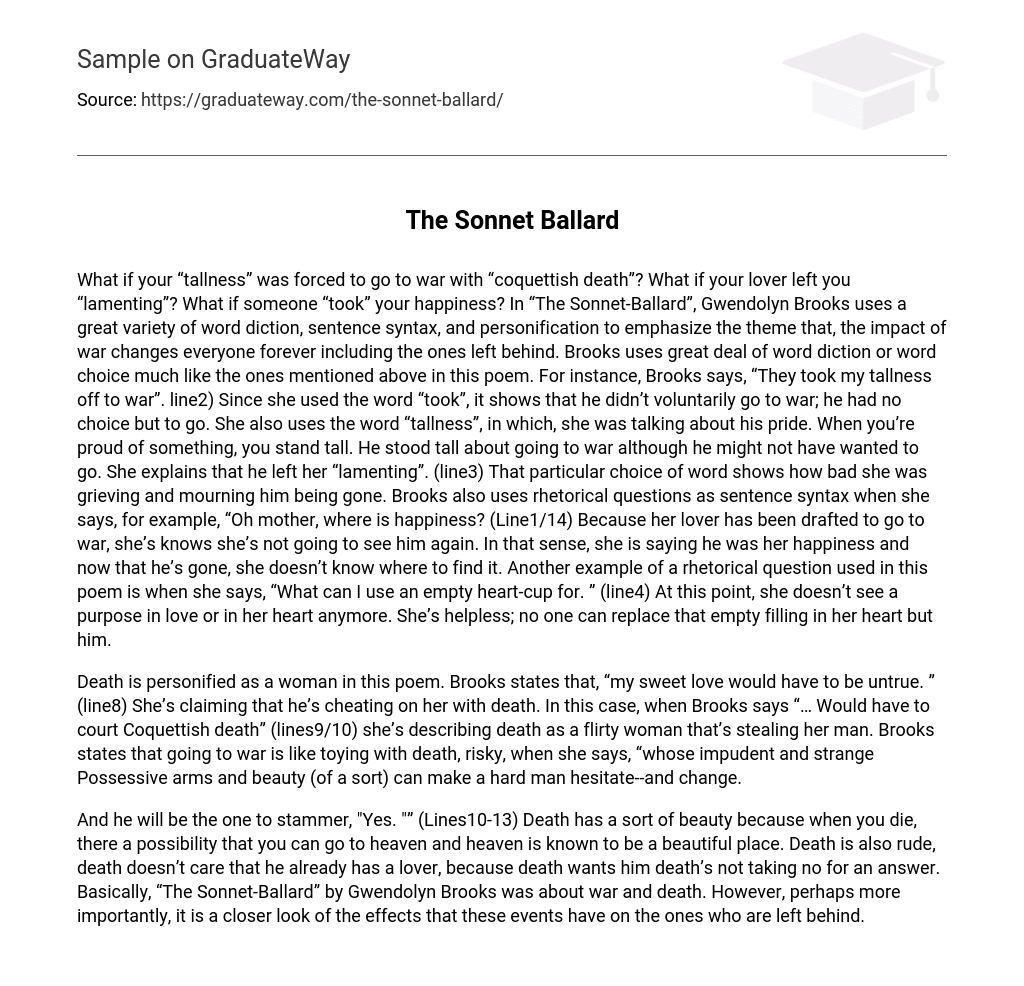What if your “tallness” was forced to go to war with “coquettish death”? What if your lover left you “lamenting”? What if someone “took” your happiness? In “The Sonnet-Ballard”, Gwendolyn Brooks uses a great variety of word diction, sentence syntax, and personification to emphasize the theme that, the impact of war changes everyone forever including the ones left behind. Brooks uses great deal of word diction or word choice much like the ones mentioned above in this poem. For instance, Brooks says, “They took my tallness off to war”. line2) Since she used the word “took”, it shows that he didn’t voluntarily go to war; he had no choice but to go. She also uses the word “tallness”, in which, she was talking about his pride. When you’re proud of something, you stand tall. He stood tall about going to war although he might not have wanted to go. She explains that he left her “lamenting”. (line3) That particular choice of word shows how bad she was grieving and mourning him being gone. Brooks also uses rhetorical questions as sentence syntax when she says, for example, “Oh mother, where is happiness? (Line1/14) Because her lover has been drafted to go to war, she’s knows she’s not going to see him again. In that sense, she is saying he was her happiness and now that he’s gone, she doesn’t know where to find it. Another example of a rhetorical question used in this poem is when she says, “What can I use an empty heart-cup for. ” (line4) At this point, she doesn’t see a purpose in love or in her heart anymore. She’s helpless; no one can replace that empty filling in her heart but him.
Death is personified as a woman in this poem. Brooks states that, “my sweet love would have to be untrue. ” (line8) She’s claiming that he’s cheating on her with death. In this case, when Brooks says “… Would have to court Coquettish death” (lines9/10) she’s describing death as a flirty woman that’s stealing her man. Brooks states that going to war is like toying with death, risky, when she says, “whose impudent and strange Possessive arms and beauty (of a sort) can make a hard man hesitate–and change.
And he will be the one to stammer, “Yes. “” (Lines10-13) Death has a sort of beauty because when you die, there a possibility that you can go to heaven and heaven is known to be a beautiful place. Death is also rude, death doesn’t care that he already has a lover, because death wants him death’s not taking no for an answer. Basically, “The Sonnet-Ballard” by Gwendolyn Brooks was about war and death. However, perhaps more importantly, it is a closer look of the effects that these events have on the ones who are left behind.





